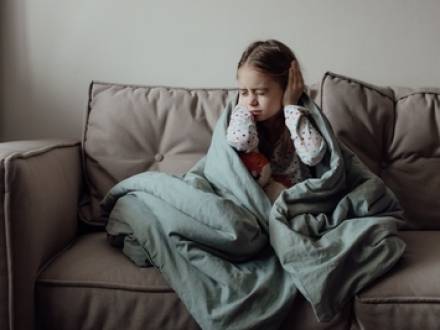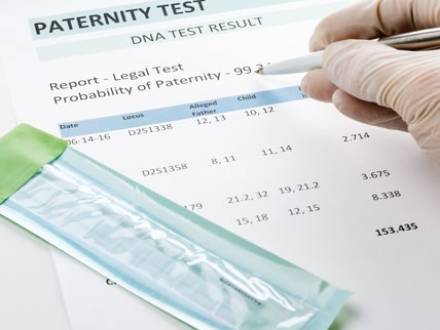Arlington Heights, IL 60005
Recent Blog Posts
What Happens to Gifts and Inheritance in an Illinois Divorce?
 The asset division process of divorce can get complicated, especially when you have a significant amount of property. Inheritance and gifts of value count as assets in Illinois, and the laws that govern them are specific. If you have questions about what will happen to your assets in a divorce, an Arlington Heights, IL divorce attorney can explain how Illinois family courts categorize separate and marital property and what situations can make the process more complex.
The asset division process of divorce can get complicated, especially when you have a significant amount of property. Inheritance and gifts of value count as assets in Illinois, and the laws that govern them are specific. If you have questions about what will happen to your assets in a divorce, an Arlington Heights, IL divorce attorney can explain how Illinois family courts categorize separate and marital property and what situations can make the process more complex.
Are Gifts Considered Marital Property in Illinois?
In general, gifts belong to the person who received them, making them separate property. However, there are unique circumstances to consider, and ultimately, property characterization can change from case to case. For example, wedding gifts are typically characterized as marital property because they belong to both spouses. However, sometimes a wedding gift is specifically given to one spouse, which could make it separate property.
How Does Domestic Violence Impact Parental Responsibilities?
 Domestic violence affects Illinois families every day. Children, whether they suffer abuse or witness it at home, can experience long-lasting mental and emotional damage from living with domestic violence. If you have an abusive spouse or ex-spouse and want to know more about what you can do to protect your child, speak to an Arlington Heights, IL domestic violence attorney to learn about how domestic violence can influence the allocation of parental responsibilities.
Domestic violence affects Illinois families every day. Children, whether they suffer abuse or witness it at home, can experience long-lasting mental and emotional damage from living with domestic violence. If you have an abusive spouse or ex-spouse and want to know more about what you can do to protect your child, speak to an Arlington Heights, IL domestic violence attorney to learn about how domestic violence can influence the allocation of parental responsibilities.
What Is Considered Domestic Violence in Illinois?
According to Illinois law, domestic violence is defined as abuse, which includes harassment and intimidation, perpetrated by someone who shares an intimate relationship with the victim. Interfering with or wilfully depriving you of your personal freedom, such as kidnapping or illegal restraint, also qualifies. Examples of abuse that commonly occur in domestic relationships are:
When Should I File for Custody Modification?
 If you are facing significant changes in life or having issues with your child’s placement, it could be time to consider a modification of custody. You may need an adjustment for many reasons, but every situation is unique and requires a close look at the details. The court considers every circumstance when determining what is best for your child. Therefore, having a strong, supported argument before you file is crucial. If you have questions about how filing a petition may benefit you, an Arlington Heights, IL attorney may be able to guide you toward the correct choice for your family.
If you are facing significant changes in life or having issues with your child’s placement, it could be time to consider a modification of custody. You may need an adjustment for many reasons, but every situation is unique and requires a close look at the details. The court considers every circumstance when determining what is best for your child. Therefore, having a strong, supported argument before you file is crucial. If you have questions about how filing a petition may benefit you, an Arlington Heights, IL attorney may be able to guide you toward the correct choice for your family.
Why Might You Need To Change a Custody Order?
A "substantial change in circumstances" is a broad way to explain when you might need to modify custody, but some common examples of changes that may warrant modification include:
-
One parent needs to relocate a significant distance away.
Why Is the Determination of Paternity Important?
 As many as 18.4 million children across the United States live without a biological father, stepfather, or adoptive father present in their homes. In the state of Illinois, about 41 percent of all babies are born to unwed mothers, totaling 54,022 births each year. Approximately 5,379 babies are born to unwed teenage mothers in Illinois.
As many as 18.4 million children across the United States live without a biological father, stepfather, or adoptive father present in their homes. In the state of Illinois, about 41 percent of all babies are born to unwed mothers, totaling 54,022 births each year. Approximately 5,379 babies are born to unwed teenage mothers in Illinois.
In most cases, it is in a child’s best interests to have a relationship with both parents. However, there are instances when the mother may claim a child belongs to someone else, or the father refuses to believe a child is his. While paternity brings responsibilities, it must be established for the best interests of the child as well as the legal rights of the father.
What Are Complex Assets in an Illinois Divorce?
 Although divorce is often emotionally complex, the term "complex divorce" is more often used to describe substantial or unusual assets for one or both spouses. Illinois is an equitable distribution state when it comes to divorce, like most other states in the U.S., minus the eight that are community property states.
Although divorce is often emotionally complex, the term "complex divorce" is more often used to describe substantial or unusual assets for one or both spouses. Illinois is an equitable distribution state when it comes to divorce, like most other states in the U.S., minus the eight that are community property states.
In a community property state, marital assets are divided right down the middle, regardless of which spouse made the larger contributions to the marital assets. Equitable distribution states try to divide marital assets fairly, although not necessarily equally. If you are facing a divorce with complex assets, you can benefit from having an experienced Rolling Meadows, IL, family law attorney who will ensure you receive your fair share of the marital assets.
What Assets Are Considered "Complex?"
While it is usually the worth of the marital assets that makes them complex, there are additional marital assets that can be complicated to divide. Complex marital assets often require more extensive research to arrive at an appropriate value. Complex marital assets include:
The Three "Cs" of a Successful Divorce
 No one enters into a marriage expecting it to fail. Despite this, more than 20 percent of first-time marriages end in divorce within five years, with 48 percent finding their way to divorce court by the 20-year mark. Although divorce is emotional and can be a really difficult life change to get through, it is possible to have a relatively healthy breakup that does not leave all those involved feeling shattered and defeated.
No one enters into a marriage expecting it to fail. Despite this, more than 20 percent of first-time marriages end in divorce within five years, with 48 percent finding their way to divorce court by the 20-year mark. Although divorce is emotional and can be a really difficult life change to get through, it is possible to have a relatively healthy breakup that does not leave all those involved feeling shattered and defeated.
While the words "successful" and "divorce" are rarely seen in the same sentence, some divorces are arguably better than others. When a relationship breaks down – especially when there are children involved – the fallout from a contentious, hate-filled divorce can do lasting damage.
Is Divorce Possible in IL if You Have a Common-Law Marriage?
 As of 2022, only eight states still recognized common-law marriages (Colorado, DC, Texas, Iowa, Oklahoma, Kansas, Rhode Island, and Montana), while Utah and New Hampshire had "limited recognition" of common-law marriage. Common-law marriage has not been valid in Illinois since 1905, and while technically, Illinois law says common-law marriages from another state will be recognized, in practice, that is much less likely.
As of 2022, only eight states still recognized common-law marriages (Colorado, DC, Texas, Iowa, Oklahoma, Kansas, Rhode Island, and Montana), while Utah and New Hampshire had "limited recognition" of common-law marriage. Common-law marriage has not been valid in Illinois since 1905, and while technically, Illinois law says common-law marriages from another state will be recognized, in practice, that is much less likely.
Common-law marriage from another state is unlikely to be recognized in Illinois without overwhelming evidence that it exists. Since that "overwhelming evidence" can be difficult to produce – even in a state that allows common-law marriages – a couple now living in Illinois may struggle to know how divorce works for a marriage that is not legally recognized in the state.
If you have a common-law marriage from another state and are now living in Illinois, it is extremely important that you speak to a knowledgeable Arlington Heights, IL family law attorney. Determining parenting time, spousal support, and the division of "marital" assets can be complex when the marriage may not be recognized as valid, and a strong legal advocate can make all the difference in the outcome.
What Are the Most Contentious Divorce Issues?
 While every marriage is different, the three most contentious issues among those with children are finances, infidelity, and incompatibility/disagreements (many about raising children). For those with no children, finances are still a contentious issue, along with infidelity, incompatibility, and difficulty communicating with one another.
While every marriage is different, the three most contentious issues among those with children are finances, infidelity, and incompatibility/disagreements (many about raising children). For those with no children, finances are still a contentious issue, along with infidelity, incompatibility, and difficulty communicating with one another.
While every divorce is different, and each couple is unique in some way, there remain standard issues across the board that tend to be the most contentious. If you are considering divorce, speaking to a knowledgeable Rolling Meadows, IL family law attorney can be beneficial. The issues that you and your spouse will end up arguing about can go much smoother when you have a strong legal advocate by your side.
Why Finances Are So Difficult in Marriage
Unfortunately, few couples begin their marriage with realistic expectations regarding money. More than a fourth of all couples say money is their greatest relationship issue, largely due to disparate spending and saving habits and different expectations of how marital funds will be managed. If both spouses are working, differences in salaries may lead to resentment about how marital funds are spent. If the couple has vastly different long-term goals, like buying a home or saving for retirement, the arguments about money may increase over the years.
My Ex Wants to Move with My Child – Can I Stop Her?
 So, you made it through your divorce and the allocation of parental responsibilities. You and your ex put together a parenting plan that seems to be working well. Your life, your child’s life, and your parenting relationship with your ex have all settled into a routine that is, for the most part, satisfying. Then, one day, seemingly out of left field, your ex-spouse tells you she plans on moving.
So, you made it through your divorce and the allocation of parental responsibilities. You and your ex put together a parenting plan that seems to be working well. Your life, your child’s life, and your parenting relationship with your ex have all settled into a routine that is, for the most part, satisfying. Then, one day, seemingly out of left field, your ex-spouse tells you she plans on moving.
Not just to another city in Illinois but to another state that is a significant distance from where you live and work. Understandably, you are upset and perhaps even angry. You currently have liberal parenting time with your child and can see that changing drastically if this move occurs. What should you do?
Can you stop your ex from taking your child that far away? You need an experienced Rolling Meadows, IL family law attorney who knows the legalities of the situation and can guide you through the process once you have made a decision on what you will do.
Discovering Hidden Assets Years After a Divorce
 According to one survey, almost 63 percent of the women who participated felt "strongly" that their husbands had hidden assets during the divorce process. This is a substantial number of divorced wives who believe they may have been cheated out of marital assets. Hiding assets can take many different forms, but it is never a good idea to be less than honest in the financial disclosure portion of a divorce.
According to one survey, almost 63 percent of the women who participated felt "strongly" that their husbands had hidden assets during the divorce process. This is a substantial number of divorced wives who believe they may have been cheated out of marital assets. Hiding assets can take many different forms, but it is never a good idea to be less than honest in the financial disclosure portion of a divorce.
Most people believe that once a divorce is over, it’s over, and nothing can be done about a bad financial agreement or failure to follow up on those gut feelings that said "he’s hiding assets." While this is true in many cases, there are certain situations where there can be recourse for a spouse who hid assets during the divorce. If you find yourself in a similar situation, it can be helpful to speak to an experienced Rolling Meadows, IL family law attorney.












